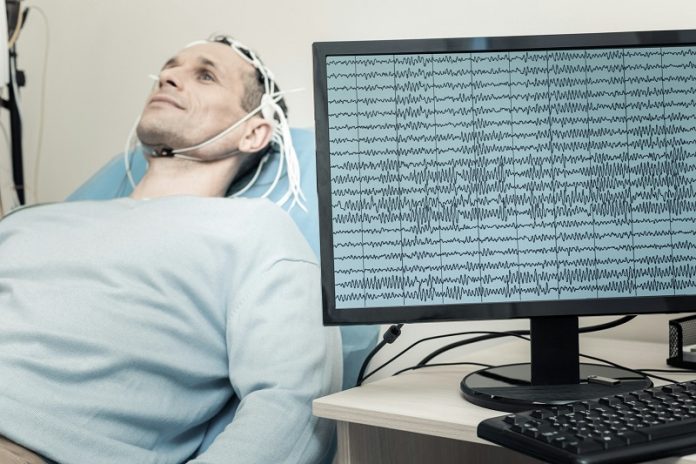
Researchers from Cambridge University have found that offering a specific type of brain scan called diffusion tensor imaging MRI (DTI-MRI) to patients with a concussion might help identify those who are likely to experience lasting symptoms that can dramatically impact their lives.
This new approach could be a game-changer in how we manage and treat concussions.
Each year, about one in 200 people in Europe suffer from a concussion, making it the most common type of brain injury globally.
In the UK alone, more than a million people visit emergency departments annually after sustaining a head injury.
When someone with a head injury arrives at an Emergency Department in the UK, they are evaluated based on the NICE guidelines for head injuries. Depending on their symptoms, they might undergo a CT scan, which checks for serious brain issues like bleeding, bruising, or swelling.
However, CT scans often fail to reveal problems in most concussion cases, identifying abnormalities in less than 10% of these patients.
Yet, despite being discharged from the hospital with a seemingly clean bill of health, 30-40% of these individuals go on to experience serious, long-lasting symptoms.
These symptoms include extreme fatigue, memory problems, headaches, and mental health issues such as anxiety, depression, and post-traumatic stress disorder (PTSD). These symptoms can persist for years and have a profound impact on a person’s quality of life.
Dr. Virginia Newcombe, a leading researcher from the University of Cambridge’s Department of Medicine and an emergency physician at Addenbrooke’s Hospital, explains that most patients with head injuries are sent home with basic advice on what post-concussion symptoms to watch for and are instructed to consult their GP if these symptoms worsen.
The problem, she says, is that many patients and even their doctors may not realize the severity of these symptoms, which can lead to a lack of proper follow-up care.
Unlike a broken bone, the effects of a concussion are often invisible, making it easy for patients to feel like their symptoms are dismissed or ignored.
In their recent study published in eClinicalMedicine, Dr. Newcombe and her team demonstrate how diffusion tensor imaging (DTI), an advanced type of MRI, can significantly enhance the ability to predict which patients are likely to suffer from long-term symptoms after a concussion, even when their CT scans show no abnormalities.
DTI works by measuring the movement of water molecules within brain tissue, creating detailed images of the brain’s white matter tracts, which are the pathways that connect different areas of the brain.
Standard MRI machines can be adapted to perform DTI scans, allowing doctors to calculate a “DTI score” based on the number of abnormal brain regions detected.
The researchers analyzed data from over 1,000 patients who participated in a large European study on traumatic brain injury between 2014 and 2017. They found that 38% of these patients had not fully recovered three months after their injury, continuing to experience persistent symptoms.
By assigning DTI scores to 153 of these patients who had undergone the scan, the researchers were able to predict with much greater accuracy which patients would have poorer outcomes. Specifically, the use of DTI improved the accuracy of these predictions from 69% to 82%.
The team also explored whether blood biomarkers—specific proteins released into the bloodstream after a head injury—could improve prognosis accuracy.
While these biomarkers alone were not sufficient, two proteins, glial fibrillary acidic protein (GFAP) and neurofilament light (NFL), showed promise in identifying patients who might benefit from a DTI scan when measured at specific times after the injury.
Dr. Newcombe stresses the importance of improving how we assess patients after a concussion, noting that current methods are not adequate.
She believes that using DTI, which can theoretically be done in any facility with an MRI scanner, could greatly improve our ability to make accurate predictions about a patient’s recovery.
Given the significant impact that concussion symptoms can have on a person’s life, these advancements are urgently needed.
The research team plans to continue exploring blood biomarkers to see if they can find even simpler and more practical ways to predict long-term outcomes. They are also looking into ways to integrate DTI into regular clinical practice.
Dr. Sophie Richter, a clinical lecturer in emergency medicine at Cambridge and the first author of the study, adds that their goal is to find ways to combine various types of information—such as symptom assessments, blood tests, and brain scans—to create a more comprehensive and accurate picture of a patient’s brain injury and their likely recovery.
If you care about Parkinson’s disease, please read studies that Vitamin B may slow down cognitive decline, and Mediterranean diet could help lower risk of Parkinson’s.
For more health information, please see recent studies about how wheat gluten might be influencing our brain health, and Olive oil: a daily dose for better brain health..
The research findings can be found in EClinicalMedicine.
Copyright © 2024 Knowridge Science Report. All rights reserved.



